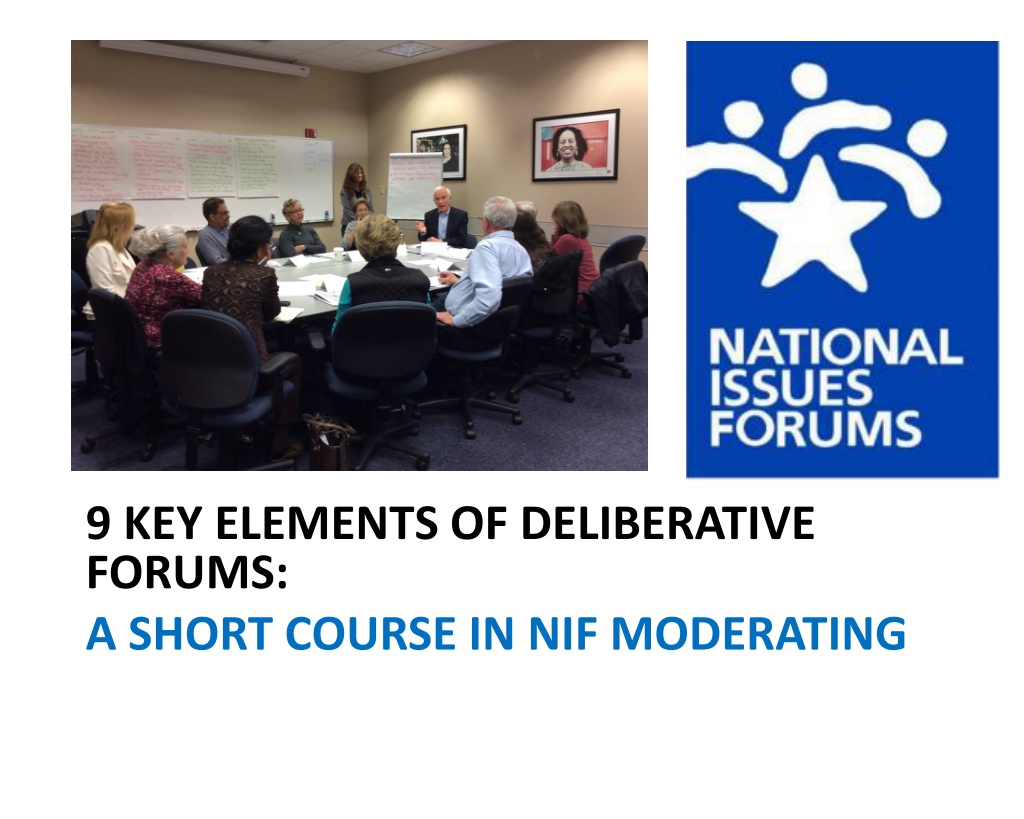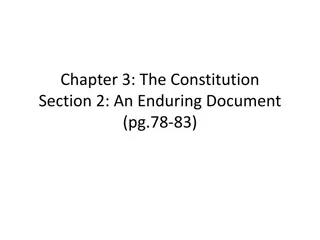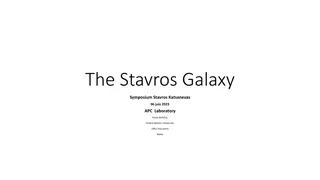Essential Elements of Deliberative Forums
Delve into the key elements of deliberative forums, focusing on the importance of deliberation, forum design elements, ground rules, and fostering effective questions for deliberation. Explore the significance of listening, weighing options, personal stakes, and reflections in fostering meaningful conversations and decision-making processes.
Download Presentation

Please find below an Image/Link to download the presentation.
The content on the website is provided AS IS for your information and personal use only. It may not be sold, licensed, or shared on other websites without obtaining consent from the author. Download presentation by click this link. If you encounter any issues during the download, it is possible that the publisher has removed the file from their server.
E N D
Presentation Transcript
9 KEY ELEMENTS OF DELIBERATIVE FORUMS: A SHORT COURSE IN NIF MODERATING
WHY DELIBERATE? Deliberation is a conversation in which people tackle controversial problems that are not easily solved and weigh different approaches with an open mind Deliberating asks us to think about questions like these: What should we do? How would different solutions affect the things I care most about? Could there be unintended consequences I haven t considered? No solution is perfect. What trade-offs can I accept? Deliberation happens all the time: We routinely deliberate about personal, family, and work decisions. It s essential for our politics as well
NIF FORUM DESIGN4 KEY ELEMENTS These four elements can help participants deliberate: 1. GROUND RULES: Take a few moments to help participants understand the distinctive goal of deliberative forums and consider ground rules for the conversation THE PERSONAL STAKE: Ask participants to talk about their personal experiences and LISTEN to those of other participants WEIGHING OPTIONS: Ask participants to work through the options and proposals in the issue guide and wrestle with benefits and trade-offs REFLECTIONS: Allow time for participants to reflect on their deliberations. This includes identifying POINTS OF AGREEMENT, but it s just as important to talk about areas where participants have SECOND THOUGHTS after hearing from others. Ask participants if there are areas where they are UNDECIDED, HAVE MORE QUESTIONS, OR WANT TO DELIBERATE MORE. 2. 3. 4.
WHAT ARE SOME GROUND RULES TO CONSIDER? Listen to others. Listening is as important as speaking. Consider each approach fairly, looking at its benefits and its trade-offs It s okay to disagree, but do so with curiosity, not hostility. Learning more about how others think is one of the most interesting parts of a forum. Keep an open mind. Avoid coming to conclusions until we ve deliberated on all the options. Others?
WHAT KINDS OF QUESTIONS FOSTER DELIBERATION ON THE OPTIONS? What do you like about this option? What worries you about it? How might people who have other life experiences see this option? Could this option have any unintended consequences? Do you see any gray areas? Others?
WHEN SHOULD I INTERVENE? As much as possible, participants should take responsibility for the deliberation. Moderators should intervene when: Everyone quickly agrees with or rejects an option. Not enough attention is being paid to the cost, trade-offs, and difficulties of an option or action. One individual is dominating. The time allocated for that section is used up.
IF I NEED TO INTERVENE . . . Go back to the issue guide: The guides include questions and trade-offs for each choice. Ask the group to take a look at them and talk about them. Ask questions such as What would opponents (or supporters) of this option say? Do you know anyone who would like (or dislike) this option? What would that person say?
THE MODERATORS ROLE SEVEN RESPONSIBILITIES 1. Explain the purpose of deliberative forums and set ground rules. Emphasize listening and reconsidering initial views 2. Encourage participants to talk about their personal stake why this issue matters to them, their personal experiences with it 3. Insure all options are considered seriously. 4. If necessary, refer participants back to the issue guide to talk about tradeoffs that aren t being considered 5. Keep track of time: All segments of the forum design are important 6. Stay neutral. Avoid being an expert. 7. Make sure participants reflect on what they ve heard Identifying points of tension and uncertainly is just as important as identifying area of agreement
NEED HELP CONVENING? ENLIST A PARTNER ORGANIZATION: Look for local organizations that bring people together on a regular basis. These include clubs, senior centers, religious groups, and book clubs It can be a great partnership they convene participants; you moderate the forum CONVENING A FORUM ON YOUR OWN? TRY THE 4 x 4 One person takes responsibility for logistics: the room, refreshments, etc. One will be the recorder. Two will share the responsibility of moderating. Each of the four recruits four more people & follows up to encourage them to attend






























